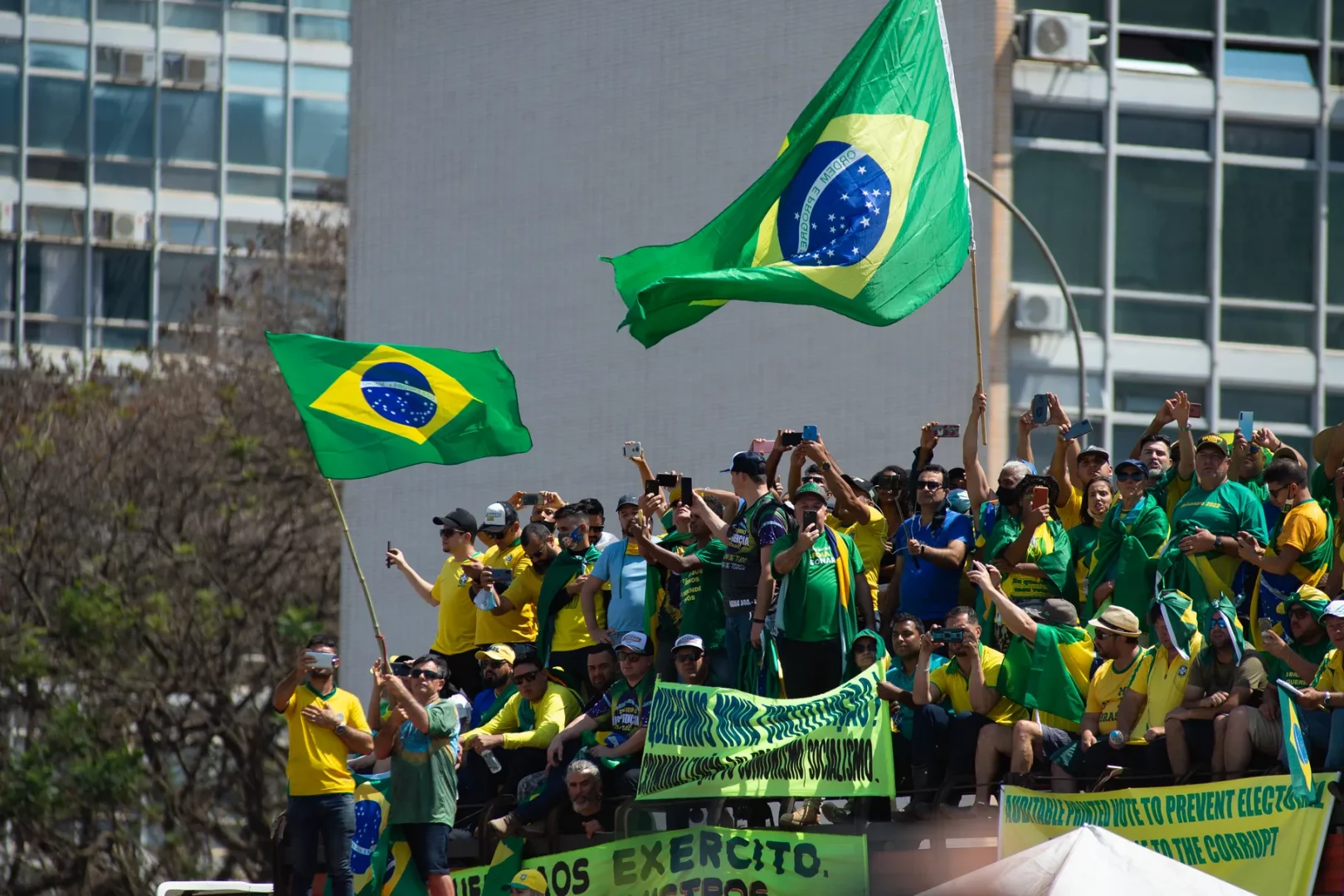In October of 2022, Brazilians will go to the polls to determine if Jair Bolsonaro remains president of Brazil. After three years as president, Bolsonaro has earned a reputation at home and abroad as an erratic far-right populist leader. Initially being elected in 2018, Bolsonaro won the presidency on his conservative values and disdain for political correctness. His opposition to abortion was applauded by the country’s sizable evangelical population, and his tough-on-crime stance was well received by many Brazilians concerned with rising violence in the country. His values and posturing have often echoed those of US President Donald Trump, and as a result, he has at times been referred to as the “Trump of the Tropics”. Indeed, from the beginning of his tenure as president on January 1st, 2019, to his current rhetoric revolving around the upcoming election, Donald Trump and Jair Bolsonaro share much in common.
Bolsonaro secured the presidency in October with 55% of the vote. As an outside anti-establishment candidate, he was able to win over many Brazilians fed up with the poor state of the country following the presidencies of Dilma Rousseff and Michel Temer. The economy was in recession, and the Petrobras Scandal led to targeted accusations against many high-level Brazilian politicians, including then-president Temer. While Bolsonaro was able to ride this wave of discontentment to victory, over the past year his image has begun to sour for many Brazilians. By the end of 2021, the approval rating for Bolsonaro had fallen below 30%. The reasons for Bolsonaro’s struggling public image can largely be chalked up to three factors: the deforestation of the Amazon, mishandling of the Covid-19 crisis, and the worsening state of the Brazilian economy. Bolsonaro’s damaging environmental policies in the Amazon rainforest have drawn scorn from heads of state around the world. His decisions to ignore six offerings of Covid-19 vaccines from Pfizer elicited anger from many Brazilians as the virus ravaged the country. But the biggest contributing factor to the discontentment towards Bolsonaro is by far the worsening state of the economy. As of late 2021, 14% of the Brazilian population was unemployed, and that figure will likely not go down in 2022 as the GDP is expected to grow by only 1%. Inflation has surged with the national currency, the Brazilian Real, trading at an all-new low against the dollar. Many believe the root of the new-found inflation is due to Bolsonaro’s decision to massively expand the Bolsa Família, a cash transfer program for the poor that he has utilized to win votes among the lower class. This expansion of the budget deficit (surprising for such a right-wing politician) has caused Bolsonaro’s relationship with the business elite to also go south, resulting in a loss of favor from one of his biggest voting blocs. The end result of all these factors is that 70% of Brazilians think the economy has worsened, and 41% say that the state of the economy will be the biggest influencer in how they cast their vote, which puts Bolsonaro in a difficult position for the October election.
The biggest challenger to Jair Bolsonaro is Luiz Inácio Lula da Silva. Former union leader and leftist president of Brazil from 2003-2010, Lula will be the chosen candidate for the left-wing Partido dos Trabalhadores, the Worker’s Party of Brazil. Lula’s campaign for office is mainly based off his hope that he will serve as a moderating force against Bolsonaro’s reckless decision making. He has specifically taken aim at Bolsonaro’s reckless behavior regarding the Covid-19 pandemic. Lula faces some big obstacles in his way as well, largely due to the recession occurring during his tenure as president and possible involvement in the Petrobras Scandal. One-quarter of Brazilians say that they will not vote for either Bolsonaro nor Lula, which means those votes will likely go to centrist contenders such as São Paulo governor João Doria, former health minister Luiz Henrique Mandetta, or former governor Ciro Gomes. Many anticipate that these contenders will split the vote, resulting in a second-round between Lula and Bolsonaro.
It is against this backdrop that we approach the Brazilian presidential elections. Just like Donald Trump in the lead up to the 2020 US elections, Bolsonaro is laying the groundwork to challenge unsavory results in October. During a campaign rally last September, he announced “Only God will remove me” showing his disdain toward democratic transitions of power. He has claimed, without proper evidence, that the country’s electronic voting system is rife with fraud. He has dismissed federal police chiefs probing into his family affairs. Finally, he has used national security laws to persecute his critics. Many of these moves were blocked as unlawful by the supreme court, resulting in a massive protest outside the courts. Bolsonaro’s false claims about election fraud, dismissal of disloyal appointees, and willingness to spur on his followers into rallies against the judicial system hold many parallels to the behavior Donald Trump exhibited as president and leading up to the 2020 US election.
However, while Bolsonaro and Trump share many characteristics in common with their populist undemocratic behavior, Brazil is a country with a much younger and weaker democracy than the United States. The reason that is relevant is because there is a much greater risk that Bolsonaro will be able to flout the rules in Brazil and be able to get away with it. Bolsonaro is an open and avowed supporter of the military dictatorship that ruled Brazil from 1964-1985 and as explained above, has been known to stretch his presidential powers while in office. It is for these reasons that a loss for Bolsonaro may result in a strong rejection of the results by him and his supporters. The most extreme event of a coup is unlikely, but there is a good chance that violence and upheaval will take place in Brasília, testing the strength of Brazil’s democratic institutions.
Graham Nau is the Assistant Editor at the Foreign Policy Association.
